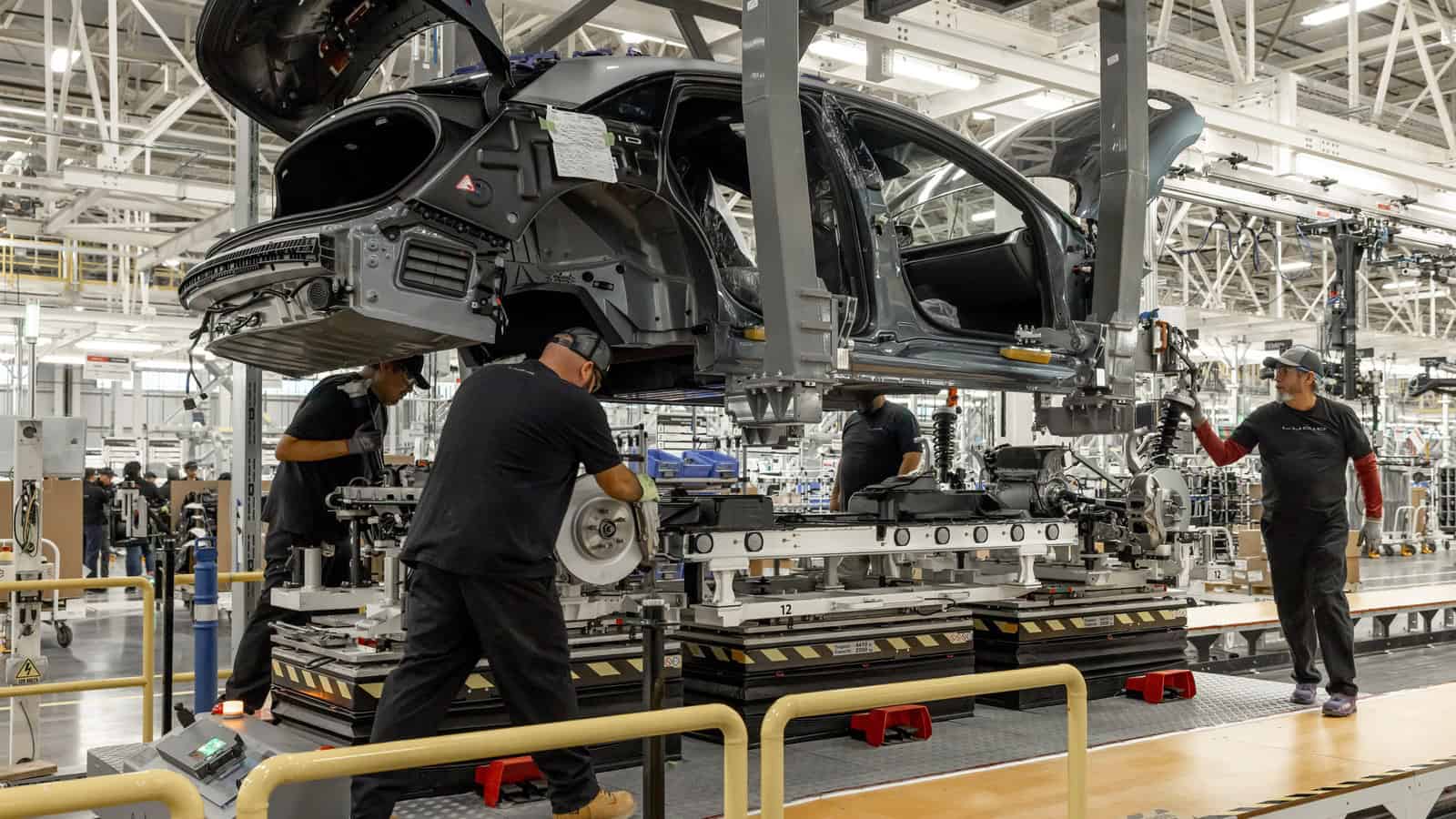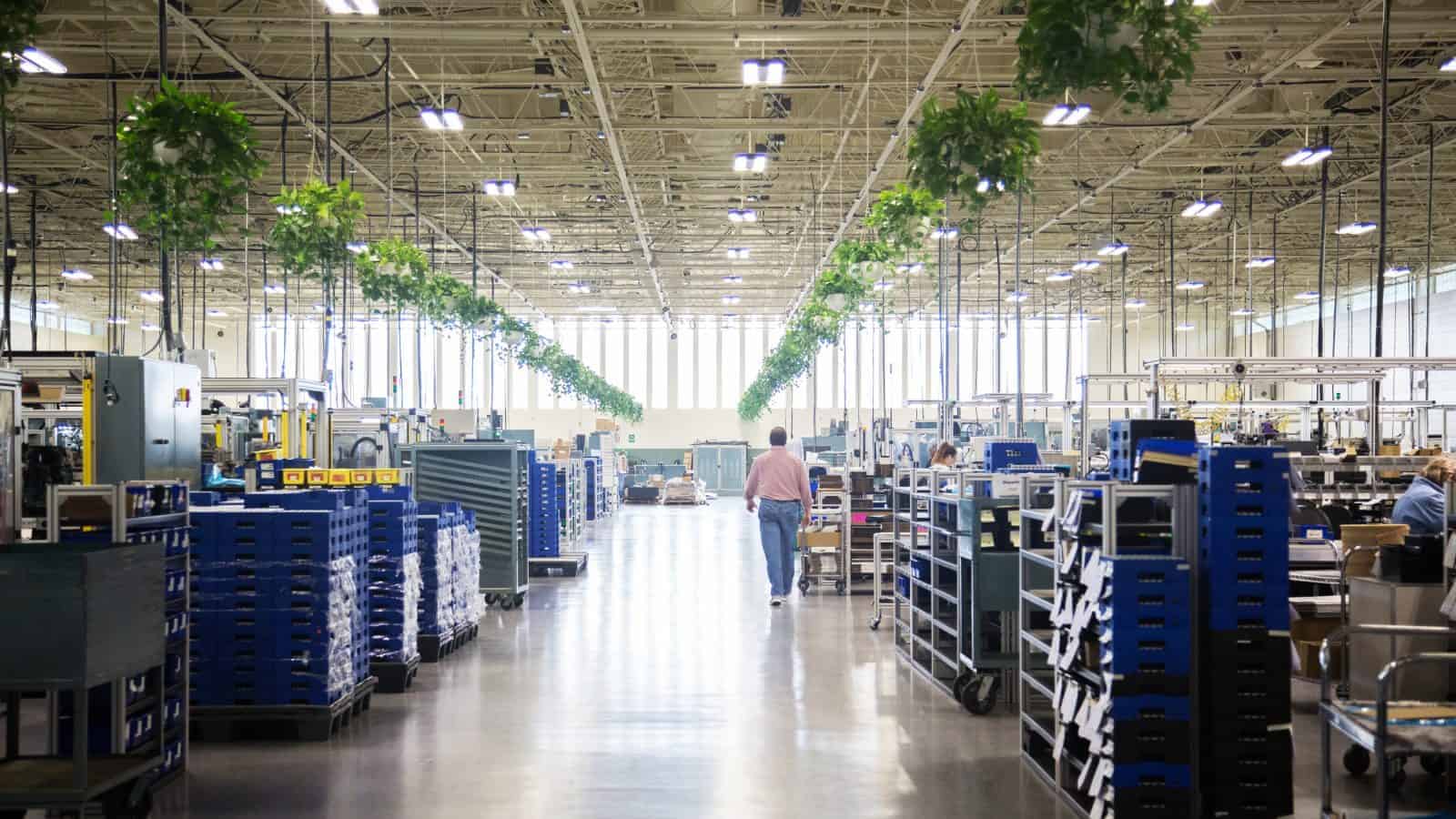Lucid Revs Up the Domestic Graphite Supply Chain

Lucid has already made one of the most energy-efficient cars on the market. Now the company is on a mission to strengthen supply chains for the critical materials powering its award-winning vehicles.
Supply chain warrior: The California-based electric vehicle manufacturer—whose 2025 Air Pure sedan is the first EV to achieve a milestone 5 miles of range per kilowatt of energy—recently reached an agreement with Alaskan mining exploration company Graphite One to purchase synthetic graphite for its vehicles’ battery packs.
- The deal, which goes into effect in 2028, is a crucial first step toward cementing a domestic supply chain of graphite, a mineral that makes up about half of every EV’s battery composition. EV batteries require both synthetic and natural graphite.
- “Today 100% of the graphite for batteries assembled in the U.S. comes from overseas,” said Lucid Motors Supply Chain Group Manager of Battery Raw Materials Michael Parton. “Building a robust domestic supply chain ensures the United States and Lucid will maintain technology leadership in this global race.”
Pandemic lesson: The global pandemic revealed the downside of depending on other nations for critical materials, and the importance of cultivating domestic sources instead.
- In 2020, “every company experienced major challenges when it came to shutdowns and global trade,” Parton said. “Having a domestic supply reduces production risk, accelerates response time and agility and lowers the need to carry higher levels of inventory.”
A midstream gap: When it comes to EV batteries and their supply chains, “much of the discussion is on localizing the bookends of the supply chain, the downstream battery production and the upstream mineral extraction,” Parton told us.
- Less discussed is the “midstream environment,” which comprises the precursor cathode active materials (P-CAM) and cathode active materials (CAM) stages. Materials used during these phases in the battery production process include critical minerals such as lithium, nickel and cobalt.
- The P-CAM market has been a difficult one to navigate, Parton added. For years, the P-CAM stage has been outsourced to countries with more cost-effective production. The problem: These countries also have less stringent environmental regulations than the U.S.
- “There’s limited investment announced [in the U.S.] in the refining and chemical conversion process at these stages, but it’s where the real need is,” Parton continued. “To promote localized sources of supply for mined and recycled minerals, there needs to be a domestic option for both P-CAM and CAM.”
A bipartisan issue: Lucid’s advocacy for a strong domestic supply chain has won bipartisan support in Congress.
- “There’s something in it for everyone when it comes to efficiency,” said Lucid Motors Senior Manager of International and Trade Policy Emily Patt, citing the environmental and self-sufficiency benefits of a resilient domestic supply chain.
What’s next: Lucid is expanding its vehicle lineup beyond the Air and the vehicle’s four trim levels.
- By the end of 2024, the company is scheduled to start production of the seven-passenger Lucid Gravity. The company has also teased an upcoming midsize platform, which is expected to start production in late 2026.
The grand vision: “The pursuit of efficiency drives Lucid as a company,” Patt said. “We’re not just making zero-emission cars; we’re committed to making the best use of the world’s resources to maximize the benefits for electrification and the planet.”
